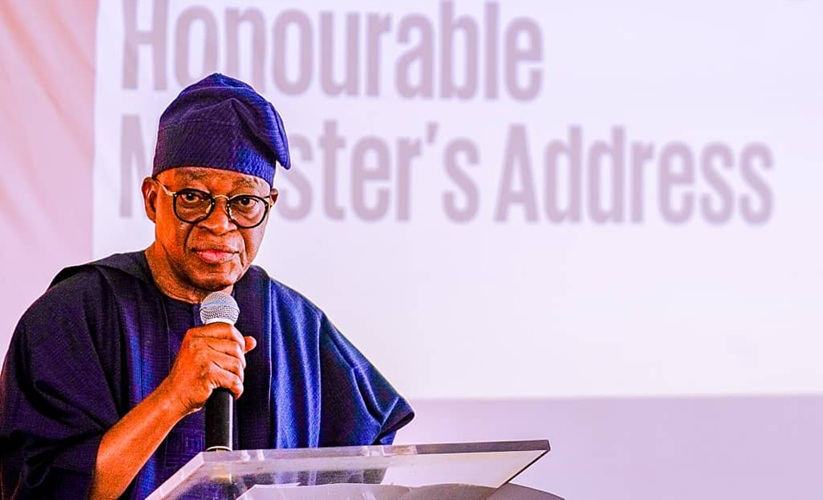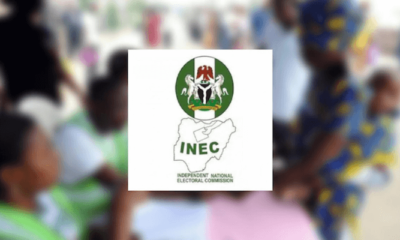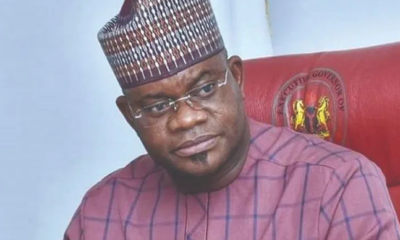Business
FG Vows to End Fish Importation, Unveils Plans To Boost Aquaculture
Federal Government’s plan to end Nigeria’s reliance on fish importation by boosting local production and supporting youth and women with start-up grants in the fisheries sector.

The Minister of Marine and Blue Economy, Mr. Adegboyega Oyetola, has announced the Federal Government’s plan to end Nigeria’s reliance on fish importation by boosting local production and supporting youth and women with start-up grants in the fisheries sector.
Oyetola made this commitment on Wednesday in Abuja during a consultative meeting with the “Fisheries Cooperative Groups”.
He outlined the government’s vision to transform “aquaculture” into a key pillar of “food security”, “job creation”, and “export competitiveness”. He emphasized the need for Nigeria to chart a new path toward self-sufficiency in fish production, stressing the government’s commitment to revitalizing the sector.
“The Federal Government is fully committed to supporting the fisheries and aquaculture subsector through policy, technical support, and financial inclusion,” he said.
According to him, efforts will focus on scaling up domestic fish production, reducing reliance on imports, and repositioning the sector for sustainable growth.
Oyetola stressed that empowering “youth” and increasing their participation in aquaculture was not only crucial for food production but also a strategic way to reduce unemployment.
He reaffirmed that the administration was committed to “youth and women’s empowerment”, with multiple initiatives already in motion.
He assured stakeholders that the ministry was actively engaging local and international partners to address industry challenges.
Oyetola also revealed that talks were ongoing with the “World Bank” to secure financial support for fish farmers and that the ministry would work with the “Nigerian Agricultural Insurance Corporation (NAIC)” to provide affordable insurance coverage.
“We are also in talks with the Federal Ministry of Water Resources to replicate the successful aquaculture model at the Oyan Dam across other regions.
“This meeting is only the beginning of a sustained and transformative dialogue. Integrated planning and inter-ministerial cooperation are key pillars of our strategy,” he added.
Earlier, Mr. Mashi Sani, President of the “Fisheries Cooperative Federation of Nigeria (FCFN)”, proposed the adoption of a “Sustainable Livelihoods and Fish Food Security Initiative (SLESI)” aimed at enhancing livelihoods across the fisheries value chain.
DON’T MISS: BREAKING: Nigerian Banks to Report Accounts With ₦5m Monthly Transactions
He recommended a three-year budget of “N75 billion” for the initiative, with targets to create “one million sustainable jobs”, reduce post-harvest losses by “50%”, and boost national fish production by “35%”.
Sani emphasized that Nigeria’s fisheries sector plays a vital role in “food security”, “income generation”, and “nutrition”, particularly in rural communities.
However, he noted that the sector is plagued by challenges such as “overfishing”, “poor infrastructure”, “limited access to finance”, and “weak extension services”.
He urged the Federal Ministry of Marine and Blue Economy to adopt and fund the SLESI in partnership with the FCFN to promote sustainable livelihoods, enhance national food security, and advance the development of Nigeria’s “blue economy”.
In addition, he called on the government to urgently address persistent issues in the sector, including “poor transportation systems”, “weak market linkages”, and “inadequate technical support”.























You must be logged in to post a comment Login